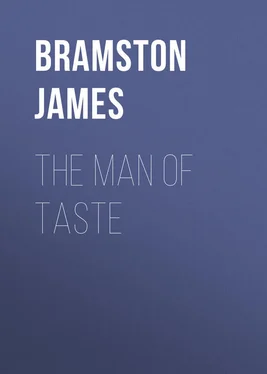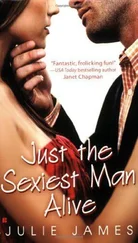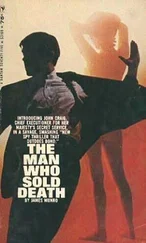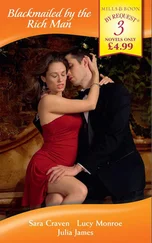James Bramston - The Man of Taste
Здесь есть возможность читать онлайн «James Bramston - The Man of Taste» — ознакомительный отрывок электронной книги совершенно бесплатно, а после прочтения отрывка купить полную версию. В некоторых случаях можно слушать аудио, скачать через торрент в формате fb2 и присутствует краткое содержание. Жанр: foreign_antique, foreign_prose, foreign_poetry, на английском языке. Описание произведения, (предисловие) а так же отзывы посетителей доступны на портале библиотеки ЛибКат.
- Название:The Man of Taste
- Автор:
- Жанр:
- Год:неизвестен
- ISBN:нет данных
- Рейтинг книги:4 / 5. Голосов: 1
-
Избранное:Добавить в избранное
- Отзывы:
-
Ваша оценка:
- 80
- 1
- 2
- 3
- 4
- 5
The Man of Taste: краткое содержание, описание и аннотация
Предлагаем к чтению аннотацию, описание, краткое содержание или предисловие (зависит от того, что написал сам автор книги «The Man of Taste»). Если вы не нашли необходимую информацию о книге — напишите в комментариях, мы постараемся отыскать её.
The Man of Taste — читать онлайн ознакомительный отрывок
Ниже представлен текст книги, разбитый по страницам. Система сохранения места последней прочитанной страницы, позволяет с удобством читать онлайн бесплатно книгу «The Man of Taste», без необходимости каждый раз заново искать на чём Вы остановились. Поставьте закладку, и сможете в любой момент перейти на страницу, на которой закончили чтение.
Интервал:
Закладка:
James Bramston
The Man of Taste
INTRODUCTION
For what has Virro painted, built, and planted?
Only to show, how many Tastes he wanted.
What brought Sir Visto's ill got wealth to waste?
Some Daemon whisper'd, "Visto! have a Taste."
The idea of "taste" and the ideal of the "man of taste" have fallen considerably in critical esteem since the eighteenth century. When F. R. Leavis calls Andrew Lang "a scholar and a man of taste, with a feeling for language and a desire to write poetry,"[1] it is clear that for Leavis these attributes disqualify Lang from being taken seriously as a poet. But for the age of Pope, "taste" was a key term in its aesthetic thinking; the meaning and application of the term was a lively issue which engaged most of the ablest minds of the period.
Addison prefaced his series of Spectator papers on the "Pleasures of the Imagination" with a ground-clearing essay on "taste" (No. 409). In this classic account of the term, Addison defines "taste" as "that Faculty of the Soul, which discerns the Beauties of an Author with Pleasure, and the Imperfections with Dislike." Addison's "taste" is an innate proclivity towards certain kinds of aesthetic experience that has been consciously cultivated in the approved direction. It is not enough to value and enjoy the right authors; they must be valued and enjoyed for the right reasons. When he holds up to ridicule the man who assured him that "the greatest Pleasure he took in reading Virgil, was in examining Aeneas his Voyage by the Map," Addison clearly expects his readers to agree that such a singular taste was in fact no taste at all. His account implies not only a standard of "taste," but also general agreement, at least among "men of taste," about what the standard was. It is this circularity that makes it essential to assume some innate faculty of "taste."
But Addison's prescription for the cultivation of taste was a laborious one, involving prolonged reading and study. The wealthy, and especially the newly wealthy, were tempted to confuse the correct appreciation of the objects of taste with the mere possession of them; so that, as with Pope's Timon in the Epistle to Burlington (1731), owning a library became a substitute for reading books. This false taste for ostentation – especially in buildings – is a frequent target of contemporary satire.
The social importance of "taste" as an index of wealth was reinforced by current philosophical thinking that gave "taste" a moral dimension too. In his Characteristicks (1711), Shaftesbury postulated an innate moral sense, just as Addison did an innate aesthetic sense. Shaftesbury draws this analogy between the moral and the aesthetic:
The Case is the same here [in the mental or moral Subjects], as in the ordinary Bodys, or common Subjects of Sense. The Shapes, Motions, Colours, and Proportions of these being presented to our Eye; there necessarily results a Beauty or Deformity, according to the different Measure, Arrangement and Disposition of their several Parts. So in Behaviour and Actions , when presented to our Understanding, there must be found, of necessity, an apparent Difference, according to the Regularity or Irregularity of the Subjects.[2]
The correct training of this capacity would enable men to make the right choices in both moral and aesthetic matters. This analogy is also the basis of Francis Hutcheson's Essay on the Nature and Conduct of the Passions and Affections (1728).
It is against the philosophical background of the writings of Addison, Shaftesbury, and Hutcheson that the satire on "taste" of Pope, Bramston, and others must be seen. But by the time Pope wrote his Epistle to Burlington , Addison's "Faculty of the Soul" had been somewhat debased as a critical term, and the decline of "taste" was a common topic. "Nothing is so common as the affectation of, nor any thing so seldom found as Taste" was the complaint of the Weekly Register in 1731, deploring "the degeneracy of Taste since Mr. Addison's time."[3]
The publication of Pope's Epistle to Burlington in December 1731 was a literary event of some importance, especially since it was his first poem since the Dunciad Variorum of 1729. The Epistle gave "taste" a renewed currency as a vogue word. "Of Taste" is found only on the half-title of the first edition. But, significantly changed to "Of False Taste" for the second edition, this designation found its way onto the title-page of the third edition, and became the poem's popular title (it is so described on the advertisement leaf of Bramston's The Man of Taste ).
Several attacks on Pope and his poem were published in the following year or so. A Miscellany on Taste (1732) reprinted Pope's Epistle with combative critical notes. Pope himself was attacked, as "Mr. Alexander Taste," in an anonymous pamphlet Mr. Taste the Poetical Fop (1732), reissued in 1733 as The Man of Taste , apparently borrowing the title of Bramston's poem.[4] Bramston's The Man of Taste (1733) is an early example of the more positive reaction to Pope's Epistle , joining him rather than attempting to beat him. Bramston's poem in its turn occasioned an anonymous The Woman of Taste (1733), and suggested some details for the character of Lord Apemode in James Miller's comedy The Man of Taste (1735). Pope himself borrowed an idea from it (see p. 14, 11. 5-6) for a passage in the Dunciad (the allusion to Free-Masons and F.R.S.; IV, 567-71).
The cluster of works provoked by Pope's Epistle is evidence of the topicality of "taste" at the time Bramston wrote his poem, and it is his Man of Taste that retains most interest today. The later history of "taste" in eighteenth-century aesthetics and satire can only briefly be glanced at here. Important philosophical discussions are Hume's essay "Of the Standard of Taste" (in Four Dissertations, 1757), Burke's Philosophical Enquiry into the Origin of our Ideas of the Sublime and Beautiful (1757; a "Discourse Concerning Taste" was prefaced to the second edition, 1759), and Alexander Gerard's Essay on Taste (1759). Foote's farce Taste (1752) exposed the sham taste for the antique. There are numerous satiric portraits of the "Man of Taste": Mr. Sterling in The Clandestine Marriage (1766) is a good example clearly in the tradition of Pope's Timon, as is General Tilney in Northanger Abbey (1818, but written much earlier).
By the time of Jane Austen, of course, "taste" had developed away from the Addisonian rules, and indeed the whole tenor of the aesthetics of the imagination had changed. What had happened can be suggested by juxtaposing two significant statements about "taste" as metaphor. In his Spectator essay (No. 409) Addison speaks of "a very great Conformity between that Mental Taste, which is the Subject of this Paper, and that Sensitive Taste which gives us a Relish of every different Flavour that affects the Palate." But in the Preface to Lyrical Ballads (1802), Wordsworth deprecates those "who will converse with us as gravely about a taste for Poetry, as they express it, as if it were a thing indifferent as a taste for Rope-dancing, or Frontiniac or Sherry."[5] But the breakdown of the metaphor of "taste" is too large a subject to be explored here.
James Bramston (?1694-1743) was educated at Westminster School and at Christ Church, Oxford, where he took his B.A. in 1717 and his M.A. in 1720. He took orders, and was for a time a military chaplain. In 1724 he obtained the living of Lurgashall, and in 1739 those of Harting and Westhampnett.[6] He published (all anonymously) only three poems in English:
Читать дальшеИнтервал:
Закладка:
Похожие книги на «The Man of Taste»
Представляем Вашему вниманию похожие книги на «The Man of Taste» списком для выбора. Мы отобрали схожую по названию и смыслу литературу в надежде предоставить читателям больше вариантов отыскать новые, интересные, ещё непрочитанные произведения.
Обсуждение, отзывы о книге «The Man of Taste» и просто собственные мнения читателей. Оставьте ваши комментарии, напишите, что Вы думаете о произведении, его смысле или главных героях. Укажите что конкретно понравилось, а что нет, и почему Вы так считаете.












